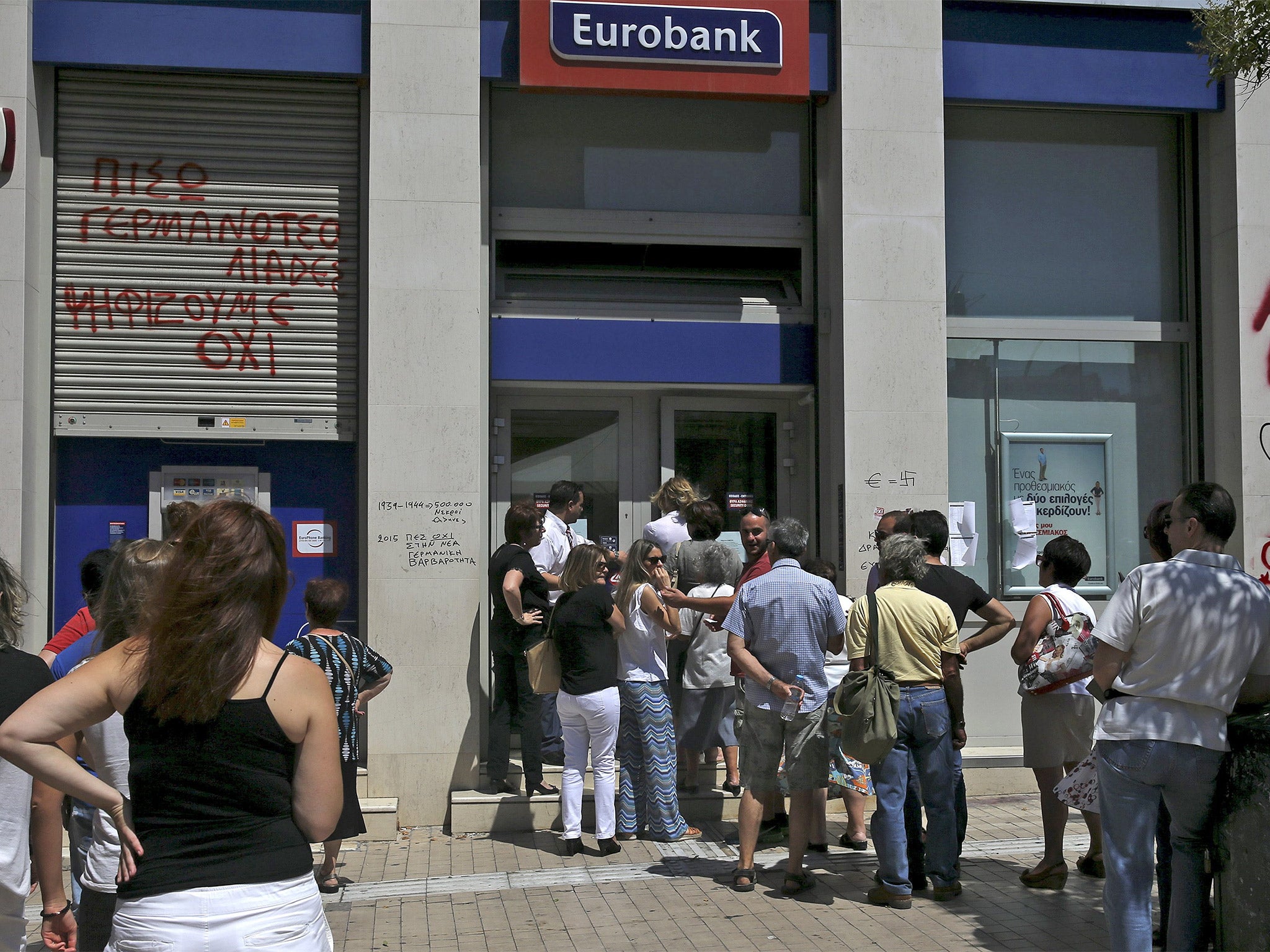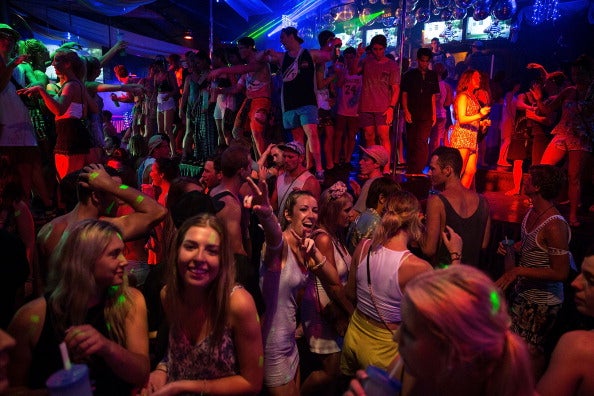Greece debt crisis: Holidaying British students are flocking to Greece, despite potential Grexit
Students are making-the-most of the Greek crisis by taking advantage of cut-price holiday and night-time offers

Your support helps us to tell the story
From reproductive rights to climate change to Big Tech, The Independent is on the ground when the story is developing. Whether it's investigating the financials of Elon Musk's pro-Trump PAC or producing our latest documentary, 'The A Word', which shines a light on the American women fighting for reproductive rights, we know how important it is to parse out the facts from the messaging.
At such a critical moment in US history, we need reporters on the ground. Your donation allows us to keep sending journalists to speak to both sides of the story.
The Independent is trusted by Americans across the entire political spectrum. And unlike many other quality news outlets, we choose not to lock Americans out of our reporting and analysis with paywalls. We believe quality journalism should be available to everyone, paid for by those who can afford it.
Your support makes all the difference.In the few days since crisis-hit Greece woke-up to a No vote against austerity in the early hours of 6 July , questions of Europe’s immediate financial future have swept the continent.
Accounting for a fifth of the country’s GDP, experts say Greek tourism will take a hit, with hotel bookings currently falling by 50,000 per day.
A historic, though traumatic, week has befallen Greece. Banks are closed, thousands of business-owners fear for their futures and ATM withdrawals remain capped at €60-a-day for cards issued by Greek banks.
On Tuesday, former finance minister Yanis Varoufakis’ replacement, Euclid Tsakalotos, met with Eurozone leaders to negotiate a crucial deal between the Leftist government and the country’s creditors. Just months ago, it was the chosen destination of a record 17.9 million tourists.

Usually, and famously, strapped for cash, it may come as no surprise that students are among those most reluctant to cancel their booked holidays. Many are concerned by charges incurred upon cancellation, as most cannot afford to lose the cost of a holiday plus additional payouts on an already tight budget.
Travel firms are refusing to offer refunds on the premise that the Greek crisis is ‘unlikely’ to disturb tourists’ spending habits. And, although British holiday-makers can withdraw up to their card’s allowance, the Foreign Office has warned cash withdrawals are likely to involve lengthy queuing once banks reopen.
But most students have found themselves unaffected by Greece’s economic situation whilst actually on their booked holiday. Tom Phillips, a recent graduate who currently lives in Brighton, travelled to Kos just two weeks ago with his girlfriend. He said the locals were “lovely” and “full of hope” - the general feeling, in this case, was far from pessimistic.

“There was only one, out of numerous ATMs, available that I was unable to withdraw money from. I didn’t feel worried about my finances,” he said.
“My holiday in Kos ended just before Greece voted No. To be honest, you really didn’t feel on edge.
“Nor was there any sense of frustration among the local people. They looked-after the Syrians who arrived early in the morning, offering food and shelter for them until they found their way to Athens.”
Students have also found themselves inundated with promotional discounts – some of up to 30 per cent – on last-minute holidays as bookings begin to fall.
Some 70,000 young people – many of them budget-savvy students – head to the coastal city of Malia each year. Known for its cheap booze, bar owners on Malia’s Beach Club strip are slashing drinks prices and offering free entry in a bid to keep the night-time economy alive.
Thousands of students are still expected to fly to three other party capitals in the next few weeks: Sidari in Corfu, Ayia Napa in Cyprus and Laganas in Zante.

Boosted income could also come from an unlikely wave of tourists swerving countries at “high risk” of terrorism, such as Turkey, France, Spain, and twenty-seven others named in a recent Foreign and Commonwealth Office report.
On 3 July, 19-year-old student, Jess Stenson, told The Guardian she had switched her July booking in Tunisia to the popular island of Corfu following the devastating beach massacre in Sousse in June.
In recent weeks, though, reservations have begun to ‘dry up’. But as prices continue to fall, many students are holding-out hope for a cut-price return on their all-inclusive investments and are continuing to holiday across Greece – despite its financial troubles.
So, if recent headlines are anything to go by, a summer holiday to the country could greatly boost Greece’s economy – with young Brits being told this year is the ‘best time to go’.
Twitter: @emily_townsend1
Join our commenting forum
Join thought-provoking conversations, follow other Independent readers and see their replies
Comments